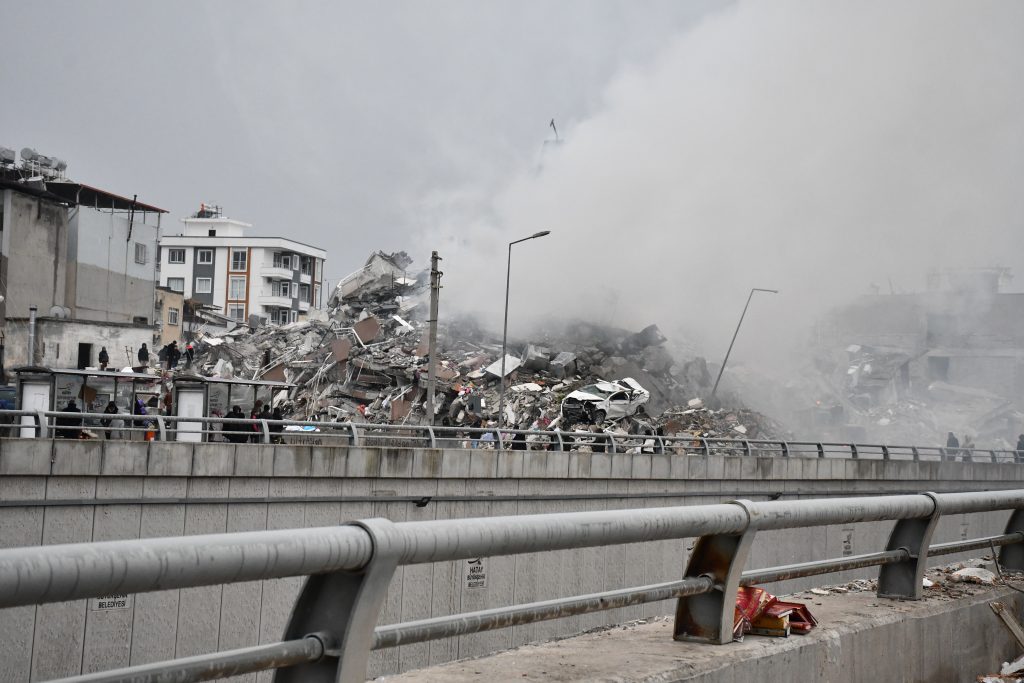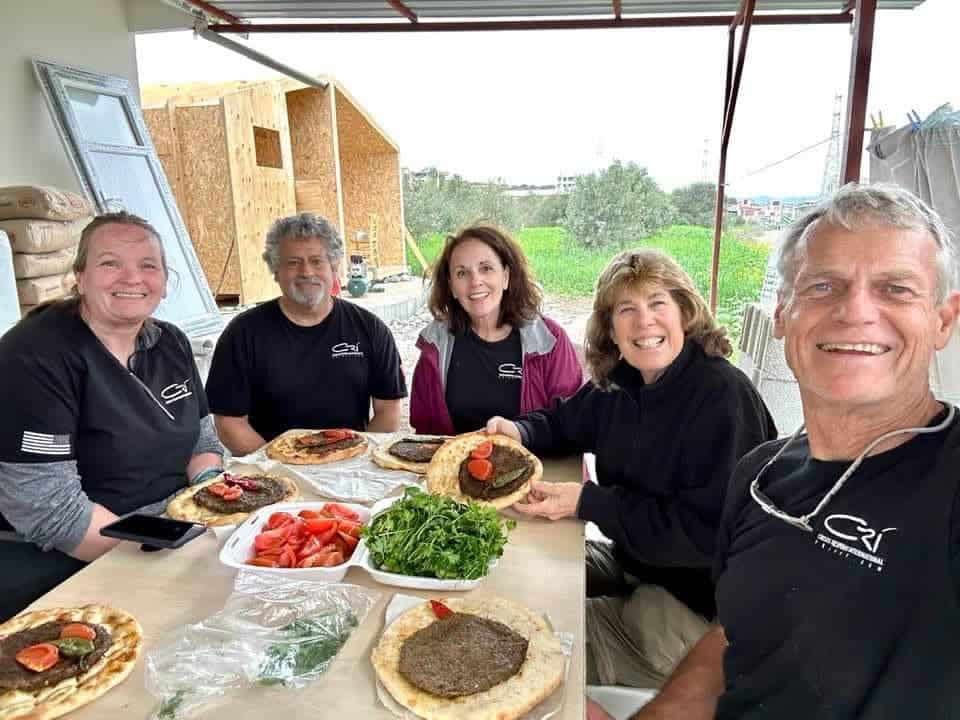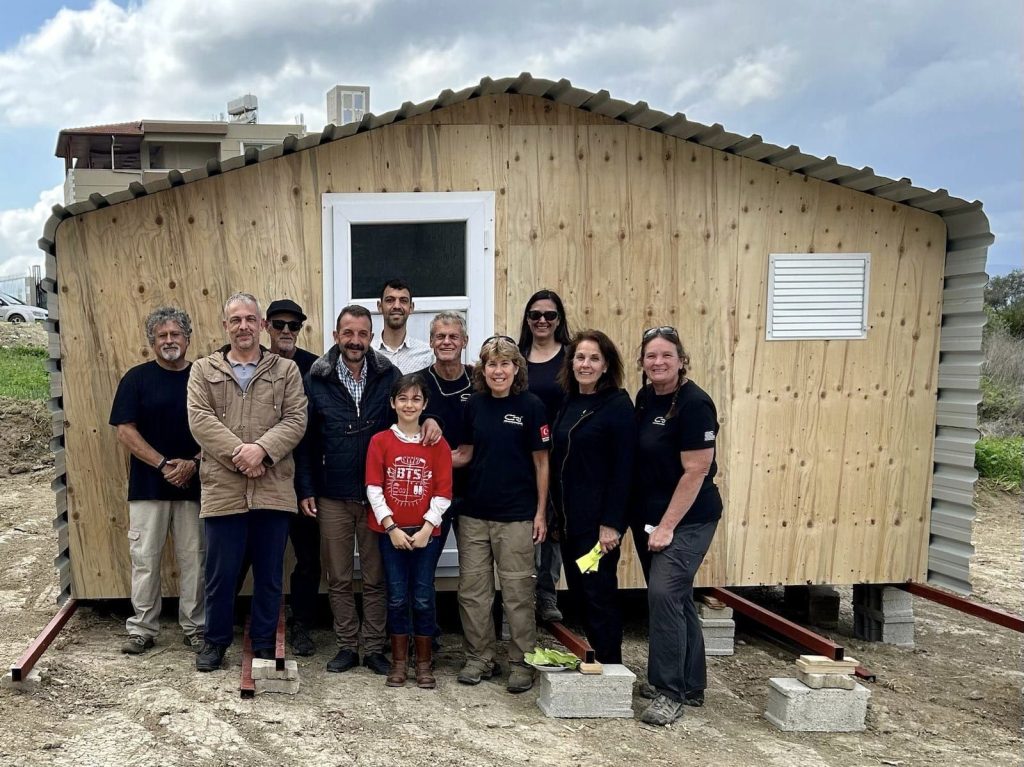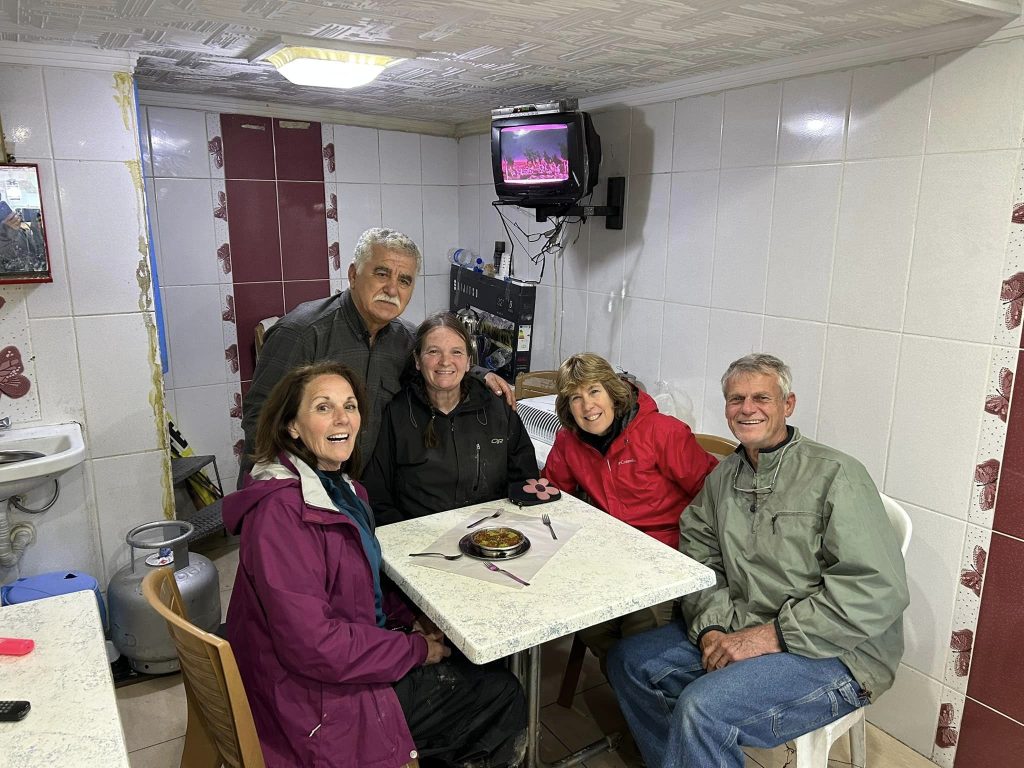Destruction. And hopelessness. Those were the two realities Deb Russell faced everywhere she looked when she deployed to Turkey with Crisis Response International in March.
On February 6, 2023, an earthquake of magnitude 7.8 hit southeast Turkey near the Syrian border. After the initial earthquake, aftershocks numbering in the thousands continued to rock the region.
When Deb arrived in March, she found endless piles of rubble. “Just dust really.”
Formerly beautiful marble homes and structures hit by earthquakes from two different directions had crumbled, trapping thousands of people inside. The piles of rubble became burial grounds for innumerable decaying bodies, irretrievable by search-and-rescue teams.
The government had sprayed the piles to prevent the spread of disease and to keep down the smell. An impossible task really, and Deb, along with many of her team, came down with some type of eye or respiratory infection when they returned home.

Deb Russell, a trained EMT, is used to moving into uncomfortable places. Her international work started, amazingly, with 9/11. “That was my impetus to go. I wanted to be part of the solution. I have the skills. I’m trained for it, and I want to help people when they’re in crisis.”
Prior to the earthquakes in Turkey, she also went to Greece during the Syrian refugee crisis of 2011. She stood on the shore, helping people from boats, administering emergency aid to the elderly, to pregnant mothers, to children. Holding and hugging, she prayed the Holy Spirit would transfer from her heart to theirs.
“It was like the end-times church. Christians coming from all over the world to extend hope and prayer and the love of Jesus… To proselytize is against the law, so you sing in whispers. I love being in the Body of Christ; unapologetic, unbound, candle-burning at both ends and dispelling darkness with love.
“The Turkish people had lost all hope,” Deb said. Many of them had never known poverty before, but quite suddenly, they were left without anything. “They didn’t even have rope to tie their tattered tarps.” Many of them believed their god was angry with them because of the corruption in the country and government. They would hug us and thank us, asking again and again, Why have you come? How is it the Christian Americans are here to help us and our own government has yet to bring assistance? They just couldn’t believe it. They felt deserted by everyone.
“Jesus brought me,” Deb replied, “and that’s how I found you.”

Deb and her team worked to build homes and temporary structures. They hauled and lifted and hammered – hard physical labor – but they also sat among the ruins and listened over tea or coffee.
“On every deployment, my heart is full yet shattered at the same time.” Shattered because of the suffering all around. “Everybody is vulnerable. Everybody is desperate. Sadness, depression and suicide fill the atmosphere. Yet, I also find myself full-hearted because it is obvious God is transforming and empowering lives as we extend our hearts to help. This is the expectation God has for us.”
What Is Compassion?
Compassion comes from the Latin “com” (with or together) and “passion” (suffer). To suffer with. (Merriam Webster) “Compassion and empathy both refer to a caring response to someone else’s distress. While empathy refers to an active sharing in the emotional experience of the other person, compassion adds to that emotional experience a desire to alleviate the person’s distress.”
Scripture tells us to be compassionate.
“Be kind and compassionate to one another, forgiving each other, just as in Christ God forgave you.” — Ephesians 4:32
“Be like-minded, be sympathetic, love one another, be compassionate and humble.” 1 Peter 3:8

The Joy of the Lord
For two to three weeks at a time, Deb lived with what she could carry on her back – clothes, sleeping bag, toilet paper, Bible. And to prepare herself, she prayed. And prayed.
“Our western culture is so removed from tragedy. We can’t begin to relate to why a mother would want to put her child in a boat. They call the Aegean Sea ‘Death’s Grip.’ So many don’t make it.
“We don’t want to suffer – even vicariously – but God keeps putting stuff in front of me. He wants me there. He opens doors. He makes it amazing. When he says, ‘Jump,’ I jump. When he says, ‘Duck,’ I duck. I’m walking with God. I’m in rhythm with him.
“I have to experience God like this. It enriches my soul, my life.”
And, in the process, Deb says, she finds commonality with “the others.”
“People are harder to dislike, avoid or disregard when you find common ground. They, too, love their children; they want them to be safe. They are discouraged and desperate for help. No different than you or I. If I were in dire circumstances as they are, I most certainly would want someone to extend heart and hand.
“Caring for others opens up things in your own life. I move into suffering because I know I will find Jesus there.”

Not everyone is called to go physically into war-torn, earthquake-ravaged countries to administer aid, but everyone is called to care, to be compassionate. What is your role?
